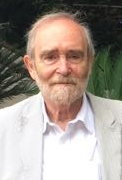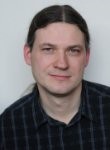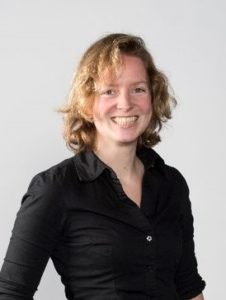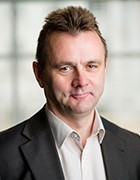| Keynote Speaker | Invited Speakers |
|---|---|
| Dino Buzzetti | Øyvind Eide |
| Marieke van Erp | |
| Paul Spence |
Keynote Speaker
Dino Buzzetti
buzzetti-udine_2019L’ “informatica umanistica” oggi, tra continuità e trasformazione
Negli anni tra la fine del secolo scorso e l’inizio del nuovo secolo, lo sviluppo delle tecnologie dell’informazione e della comunicazione ha indotto profonde trasformazioni culturali e sociali che hanno avuto un impatto significativo anche sulle concezioni teoriche e sulla pratica di ricerca dell’informatica umanistica. Lo spazio digitale non può più essere concepito come una realtà astratta e virtuale, ma è entrato prepotentemente a far parte delle attività concrete della vita quotidiana. Tutto ciò impone una profonda revisione nella formazione e nell’avviamento ai metodi e alle applicazioni dell’informatica umanistica, sia per quanto attiene alla sua collocazione scientifica e istituzionale, sia per quanto riguarda la sua diretta attività didattica. Il recente fiorire dei dibattiti sulla natura e sulle finalità specifiche dell’informatica umanistica ne sono una chiara testimonianza vivente. Ciò che si va profilando con sempre maggiore evidenza paiono essere due diversi orientamenti diretti, da un lato, alla digitalizzazione delle fonti e alla produzione di risorse digitali accessibili in rete e, dall’altro, all’applicazione di nuove forme emergenti di metodi computazionali all’analisi e all’interpretazione del contenuto informativo della sempre maggiore quantità di dati disponibili in forma digitale.
Digital Humanities today, between continuity and transformation
In the years between the end of the last century and the beginning of the new century, the development of Information and Communications Technologies has brought about profound cultural and social transformations that have impacted critically also on the theoretical conceptions and research practices of Digital Humanities. The digital environment cannot be thought of any more as an abstract and virtual reality, but rather it has overwhelmingly become part of daily and concrete activities. All this demands a reflective revision of teaching and initial training in DH methodologies and applications both for what concerns its scientific and institutional position, and its direct teaching activities. The frequent debates of the last few years on the nature and the specific scope of Digital Humanities are clear proof and living witnesses to this. What appears with ever increasing clarity is the development of two different tendencies: one towards the digitization of the sources and the production of digital resources accessible online, and the other towards the application of novel emergent forms of computational methodologies for the analysis and the interpretation of the information content of the ever-increasing quantity of data available in digital form.

Dino Buzzetti is a historian of philosophy and taught medieval philosophy at the University of Bologna. He has published essays on medieval logic and metaphysics and the history of logic in general. He also gave courses on document representation
and processing at the Faculty of Preservation of the Cultural Heritage in Ravenna and on humanities computing to philosophy students. He has published articles on digital editions of manuscript texts and digital text representation and is among the
contributors to the TEI/MLA volume on Electronic Textual Editing.
Invited Speakers
Øyvind Eide
Models as forms, models as concepts
In modelling processes in digital humanities we operationalise our models in the form of computer based artefacts such as programmes, 3D models, or interactive maps. Modelling processes are carried out by one or more persons based on a more or less explicitly defined methodology. This always leave room for making choices on the side of the scholar based on knowledge, abilities, and an understanding of good scholarly practice. In the role of modeller a scholar is a skilled actor doing practical work on mediated objects. The span between the conceptual level and the concrete mediated level will be explored in this paper, based on examples taken from fields of digital humanities practice such as mapping, 3D modelling, and experimental virtual reality systems.

Øyvind Eide is a professor in Digital Humanities (Historisch-
Marieke van Erp
Finding common ground between text, maps, and tables for quantitative and qualitative research

Marieke van Erp uses language technology to make big data more accessible for humanities research. In her research, she has made various datasets more insightful, enabling semi-automatic storytelling from data as well as discoveries of needles in data haystacks, such as shady actors involved in the financial crisis and half-eaten animal specimens. Since 2017, Marieke van Erp is the team leader of the Digital Humanities Lab of the Royal Netherlands Academy of Arts and Sciences Humanities Cluster (KNAW HuC). Van Erp, language technologist and specialist in the field of semantic analysis of texts on entities and events, worked at Tilburg University, Naturalis, and since 2009 at the VU; she pioneered her PhD research (defended in 2010) on digital humanities methods on historical textual sources.
Paul Spence
Are the Digital Humanities ‘language insensitive’? Connecting debates about Modern Languages, global cultural representation in DH and the international classroom
Considerable attention has been given to global cultural representation in the Digital Humanities in recent years, but has DH become any more ‘language sensitive’ as a result? Some have proposed that the Modern Languages offer an important new dimension to cultural criticism in DH through what they call a ‘critical DHML’ approach (Pitman & Taylor 2017), but what does such an approach look like in practice? Studying both digital mediations of Modern Languages research and ML perspectives on digital studies, the Language Acts & Worldmaking project’s digital mediationsstrand explores how a more ML-inflected research agenda might help address cultural diversity in DH, and how this in turn might help to facilitate inclusive pedagogies.

Paul Spence is a Senior Lecturer in Digital Humanities at King’s College London and has an educational background in Spanish & Spanish American studies. In the past he has led digital research on a number of projects involving digital edition, user-generated content, innovative visualisation and digital publishing. He co-developed the multi-platform publishing framework xMod (now Kiln), which has been used on over 50 projects. His research currently focuses on digitally mediated knowledge creation, global perspectives on digital scholarship and interactions between modern languages and digital culture. He leads the ‘Digital Mediations’ strand on the AHRC-funded Language Acts and World-making project.
